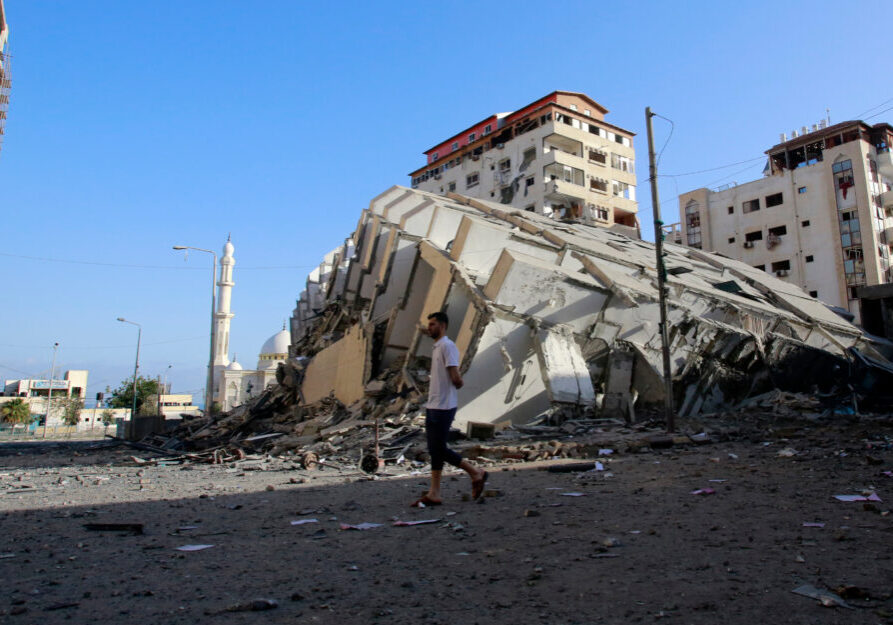Australia/Israel Review
Scribblings: NIE Detractors
Jan 1, 2008 | Tzvi Fleischer
Tzvi Fleischer
NIE Detractors
It has been widely reported that Israeli security and intelligence officials dispute the latest American National Intelligence Estimate (NIE) on Iran, which says Iran suspended its military nuclear program in 2003. (Of course, as Patrick Clawson points out in this edition, this finding, even if completely accurate, does not necessarily mean that Iran has given up working on nuclear weapons. They may have changed the sequence from the politically risky weaponisation part first to the politically safer – and technologically harder – enrichment first.) Israeli Defence Minister Ehud Barak was widely quoted as saying that “It is apparently true that in 2003 Iran stopped pursuing its military nuclear program for a certain period of time. But in our estimation, since then it is apparently continuing with its program to produce a nuclear weapon.”
Meanwhile, in a piece in the New Republic (Dec. 6) by top Israeli journalist Yossi Klein Halevi, unnamed Israeli security official after security official is quoted as disparaging the American report as politicised and its refusal to draw conclusions about Iranian intent as illogical. Former Mossad head Shabtai Shavit says the weaponisation suspension, if true, is of little importance to Iran’s overall intentions, and if he had written the report, “I would have based my assessment on the facts and said unequivocally that Iran is going to create the ability to make a bomb.”
What is interesting is that it is not the Israelis alone who are disputing the NIE, but also in much less reported comments, British intelligence chiefs. According to the London Telegraph, (Dec. 12), “British spy chiefs have grave doubts that Iran has mothballed its nuclear weapons programme, as a US intelligence report claimed last week, and believe the CIA has been hoodwinked by Teheran.” The report also stated, “A senior British official delivered a withering assessment of US intelligence-gathering abilities in the Middle East and revealed that British spies shared the concerns of Israeli defence chiefs that Iran was still pursuing nuclear weapons.”
Further, the story added, “A US intelligence source has revealed that some American spies share the concerns of the British and the Israelis. ‘Many middle-ranking CIA veterans believe Iran is still committed to producing nuclear weapons…’”
Unintended Consequences?
Dr. Stephen Peter Rosen, Professor of National Security and Military Affairs and Director of the John M. Olin Institute for Strategic Studies at Harvard University, has raised a serious concern about the unintended consequences of the NIE report, even if its claims about the weaponisation suspension prove wholly accurate.
He wrote on the Olin Institute’s MESH blog (Dec. 7):
In my view, the Iran program halted in 2003 because of the massive and initially successful American use of military power in Iraq…
If this is true, the Iranian government responds to imminent threats of force, not economic sanctions or diplomatic concessions. If that is the case, as the threat of US use of force goes down, the likelihood that Iran restarts its program goes up…
The NIE, however, ensured that there would be no US or Israeli use of force for the foreseeable future. So the prediction is that warhead production activity has restarted, and will produce a useable gun-type design quickly…
He goes on to predict the first bomb test could occur by “late 2009”.
It would indeed be ironic if the NIE report, by accurately reporting the Iranian posture, effectively removed the reasons for Iran’s nuclear suspension and thus render its own description of the situation obsolete.
Moreover, what Rosen has to say about what will happen once Iran gets the bomb bears repeating, because it is not exactly comforting. He predicts that Iran will transfer nuclear technology “to its friends” and attempt to use nuclear threats to dominate the Persian Gulf region.
The Cold Feet Switcheroo
For anyone following the debate about the controversial Walt and Mearsheimer Israel lobby book, I cannot recommend highly enough a new blog post by top Middle East scholar Dr. Martin Kramer – available at http://tinyurl.com/2z8go9.
I cannot do justice to his full argument in the space available, but what he points out is basically this: Walt-Mearsheimer have two significant examples to support their core allegation that the Israel lobby is forcing America to pay a terrible price for its support for Israel. Their first argument – Israeli occupation of the West Bank and US support for it caused the 9/11 attacks – few serious people accept. The second is that pro-Israel lobbyists caused the Iraq war.
However, Kramer points out that in their new book, as opposed to the original 2005 article, Walt and Mearsheimer have changed their argument in response to critics. They now basically concede that the critics are right that the Israeli government and its supporters were largely uninterested in Iraq and focused on Iran until the Bush Administration was already committed to a major effort in Iraq.
However, Walt and Mearsheimer now argue that the Israel lobby is nonetheless responsible for the war because “Top Israeli officials were doing everything in their power to make sure that the United States went after Saddam and did not get cold feet at the last moment.”
But Kramer points out that both any Bush Administration “cold feet” on Iraq and Israeli attempts to prevent them appear wholly fictitious, and Walt and Mearsheimer offer not a single footnote to back up either of these claims. Yet both are now central to their whole thesis.
Obviously I can’t do Kramer full justice here, but please read his post for yourself.






